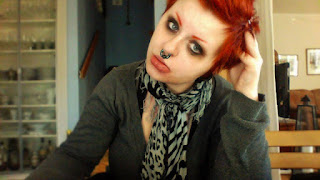Heike's Story
2016 has been full of unexpected turns. It brought a fair share of challenges to many but blessings still abound. The past few years for me personally have been a whirlwind - overcoming health challenges, welcoming professional advancement, and sustaining personal growth. I have an unyielding resilience that I refuse to surrender, and I know that I am not alone. I find comfort in knowing that I stand beside, and on the shoulders of, so many who face seemingly impossible circumstances, pain and prodding, setbacks and complications, yet maintain the will to live another day. As we learn from Heike "In Her Own Words," no matter our challenges or disappointments, there is always a good reason to keep fighting. Our ability to hope becomes our will to live, and our collective will sounds the siren call for a humanity that refuses to die for illness sake. With each breath we pull, mankind pushes forward, refusing to be silenced. As we close out 2016, let's resolve to maintain a spirit of hope, peace, and fortitude no matter what this upcoming year may bring.
Happy Holidays!
Hometown: Bochum, North Rhine-Westphalia, Germany
When I was younger, I wanted to be: A veterinary nurse
In 10 years, I will have: I live in the here and now and don't think about what's in 10 years. I have to thank my AVM…
My life long goal is to: The goal of my life is to spend a long and good life with my family.
If I could change one thing about the world, I would: For me, it is important that we understand other people as individuals, accept their strengths and weaknesses as they are.
My favorite quote/scripture/affirmation statement is: In the morning, you are welcome is my motto in life (English Translation). It means that I love my life even with all the problems an AVM creates. I love my life along side all the people who don't know what real problems are, how it is to be sick or be made fun of. It means that every day is a good day because I'm alive, and when I go to bed every night, I'm happy because I've won the fight against the AVM, not my personal war but the one fight.
1) Describe the type of AVM you have? What was the first sign?
In1986, at the age of 11 years, I had severe pain in my right shoulder for no apparent reason.
2) How did you eventually come to receive treatment?
The diagnosis in 1996 was an AVM in right shoulder.
3) Who are/were your main doctors, where are/were you treated and how has your care been?
Over the last 20 years, there have been so many different doctors - diagnostic radiologists, orthopedists, neurologists, surgeons and angiologists.
4) How do you feel your health will progress in the future?
I hope that my AVM remains stable and no longer grows above all that it is not ruptured.
5) How has having an AVM changed or impacted your life?
The disease determines my life... Things like to horse ride or roller coaster ride are taboo for me.
6) What has been your biggest challenge in the battle with AVM?
For me, it would be important to make people realize that I am seriously ill, even if you don't immediately see it. I fight every day to be normal and live my life.
7) What do you think a documentary about those surviving AVM can achieve?
It would be great to make it clear to people that we have a disease just is like AIDS, Cancer, ALS and Multiple Sclerosis. Our disease is not necessarily fatal but just as mean and sneaky as the others.
8) What are your hopes for the future of AVM research?
Safe treatment methods for us as patients who are crowned by success.
9) What has been the biggest lesson you've learned throughout your journey thus far?
To take life as it is with all its small inconveniences, to enjoy every day, to feel human.
10) What is your proudest accomplishment?
My personal greatest achievement was in 2011 as I brought a little healthy son into the world who today is my pride.







